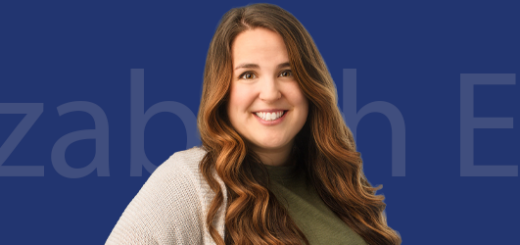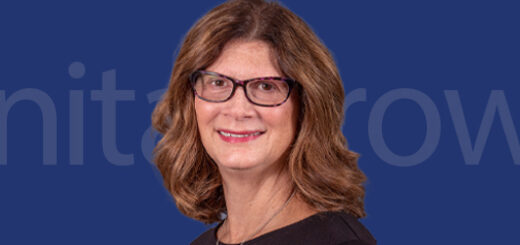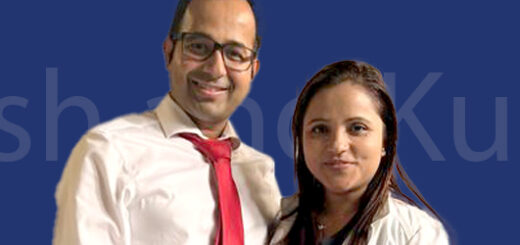Alums Drive LPP Outreach Efforts

For Caitlin Bajrektarevic ’21 and Caryn L. Schweinsberg ‘20, both graduates of SUNY Poly’s Community and Behavioral Health (CBH) program, you might say their ties to the institution run deep. Their mothers both attended and graduated from the university, and now they’ve returned to help lead the university’s educational outreach efforts at six Herkimer County school districts through the Liberty Partnerships Program (LPP), which is grant funded through the New York State Education Department.
Caryn currently serves as the project director, leading the close-knit team in serving the LPP contract for SUNY Poly, handling program development, trainings and conversations with partnered local agencies and managing collaborative partnerships, all of which help them with enrolling qualified students in the program which seeks to provide students with services and supports ultimately driving positive academic outcomes and success throughout the duration of their educational career. Caitlin has a dual role as assistant director and as a student and family advocate, assisting Caryn with planning and programming while supporting several served districts. They are joined in the office by another student and family advocate, with both that advocate and Caitlin being embedded at three districts, executing planned programming and working with Caryn and their respective districts to identify and provide student-centered programming to facilitate goal achievement and academic success.
Caitlin and Caryn both grew up locally, having attended Proctor (Utica) and Oriskany High Schools respectively. Caitlin earned her Associate’s Degree in Psychology from Mohawk Valley Community College, before transferring to SUNY Poly, while Caryn spent the entirety of her collegiate career at SUNY Poly. They both speak highly of their time in the CBH program, and of Interim Dean of the College of Health Sciences Dr. Joanne Joseph and Professor of Sociology/CBH Program Coordinator Dr. Veronica Tichenor.
In a recent interview, they were asked several questions about their experiences at SUNY Poly and how it’s translated into success in the field and life.
Q: Why SUNY Poly?
Caitlin: SUNY Poly also allowed me to stay close to my family, which was a priority for me. My mom is a SUNY Poly graduate, and I’ve gotten to grow up and see her become the successful woman that she is. So, I wanted to follow suit. Then, hearing about the CBH program confirmed my interest in coming to SUNY Poly. Post-graduation, I am very thankful SUNY Poly was the choice I made. The college has so much to offer and thanks to the CBH program I felt prepared for any career in the field going forward.
Caryn: My family has had close ties personally and professionally to SUNY Poly for many years, that alone was great motivation to explore the many educational possibilities SUNY offers, however I chose SUNY Poly for its CBH program which provided a diverse and unique approach to preparing for my chosen career path. The program also allowed for me to embrace my interest in psychology and the human services field which was a personally strong influence growing up as both of my parents cultivated successful and rewarding careers in the field.
Q: How have you used what you learned in the CBH program in your current roles?
Caitlin: Having a background in community behavioral health opened my eyes in so many ways. Learning about the biopsychosocial model changed the way I look at situations we regularly find ourselves navigating within the field. Learning about adverse childhood experiences, which is something that Dr. Joseph and Dr. Tichenor did a beautiful job [explaining and] ingraining into us is something that I find myself regularly reflecting on with this position. I have gained a deeper understanding on how those experiences can affect someone’s life. It made it apparent how resiliency and early interventions can impact any student, which is exactly why the Liberty Partnership Program grant is so important. The CBH program has had a huge impact on me and my life. I feel fortunate to have graduated from a program where the tools learned are something I utilize daily.
Caryn: I would regard both knowledge of resiliency in tandem with adverse childhood experiences as well as the ability to utilize the biopsychosocial model in the field, as integral lessons learned during my time as a CBH student. Perhaps most influential and relevant to the program currently, is the profound impact access to and provision of supportive services have on academic success. I believe increased access to diverse resources and supports not only facilitate resiliency in our target populations, but also will provide a direct correlation to positive academic outcomes in the students we have the privilege to serve. I would also say a multidisciplinary understanding of how socio-economic factors affect success in students.
The CBH program also provided a comprehensive understanding of group dynamics, communication, social awareness, critical thinking and problem solving all of which are essential to building relationships within the LPP program, whether that be with school administration, or with parents and families and further building the program itself.
Q: What’s your motivation to come to work each day?
Caitlin: For me, I always knew that I wanted school involvement within my career. That is a part of why I chose CBH as my major. There was never any doubt that the program would give me the tools needed to work with our youth and be able to provide them with the support and resources best suited for them. Every day, knowing that I am working in a position that I’ve prepared and studied for is motivating. Though it is not always easy, I can truly say I get to work in a position that I am passionate about. As cliche as it may sound, I truly feel as though I am living the dream.
Caryn: I have always had a love and a drive for program development and knowledge. Having the privilege to blend creativity and innovation in delivering those two components to promote positive outcomes in youth is so rewarding. Getting to know the students themselves as well and to have the unique privilege of supporting them while creating and evolving programs that will directly impact them is very motivational. In addition, getting to come back to SUNY Poly, connecting with former professors and advisors to serve our program goals is an amazing experience.
Q: What would you explain as benefits of the CBH program, to someone who might be interested?
Caryn: It’s a very unique program. Caitlin and I had completely different experiences while adhering to kind of the central pieces of the program itself, which is to give you a multidisciplinary approach to the human services, psychological, sociological and medical fields through education and experiences. It does that so dynamically that you feel like you’re getting a very personal experience. I felt like I really got a comprehensive, multidisciplinary degree, and created an excellent foundation for my evolving career aspirations. My time as a CBH student opened doors for the many opportunities I have had since graduation, most recently the privilege to return to college in a new and exciting way.
Caitlin: Reflecting on what Caryn said, the program is tailored to you and your interests. I have classmates who have chosen various paths forward with the degree. No matter what your focus is, the program has thoroughly prepared us all. We have a biopsychosocial approach to the world around us and anything that we may encounter. Community Behavioral Health is a well-rounded program that prepares you for life overall. Not just when it comes to what field you’re going to be in, but also, navigating your own life, which makes the program especially unique.






